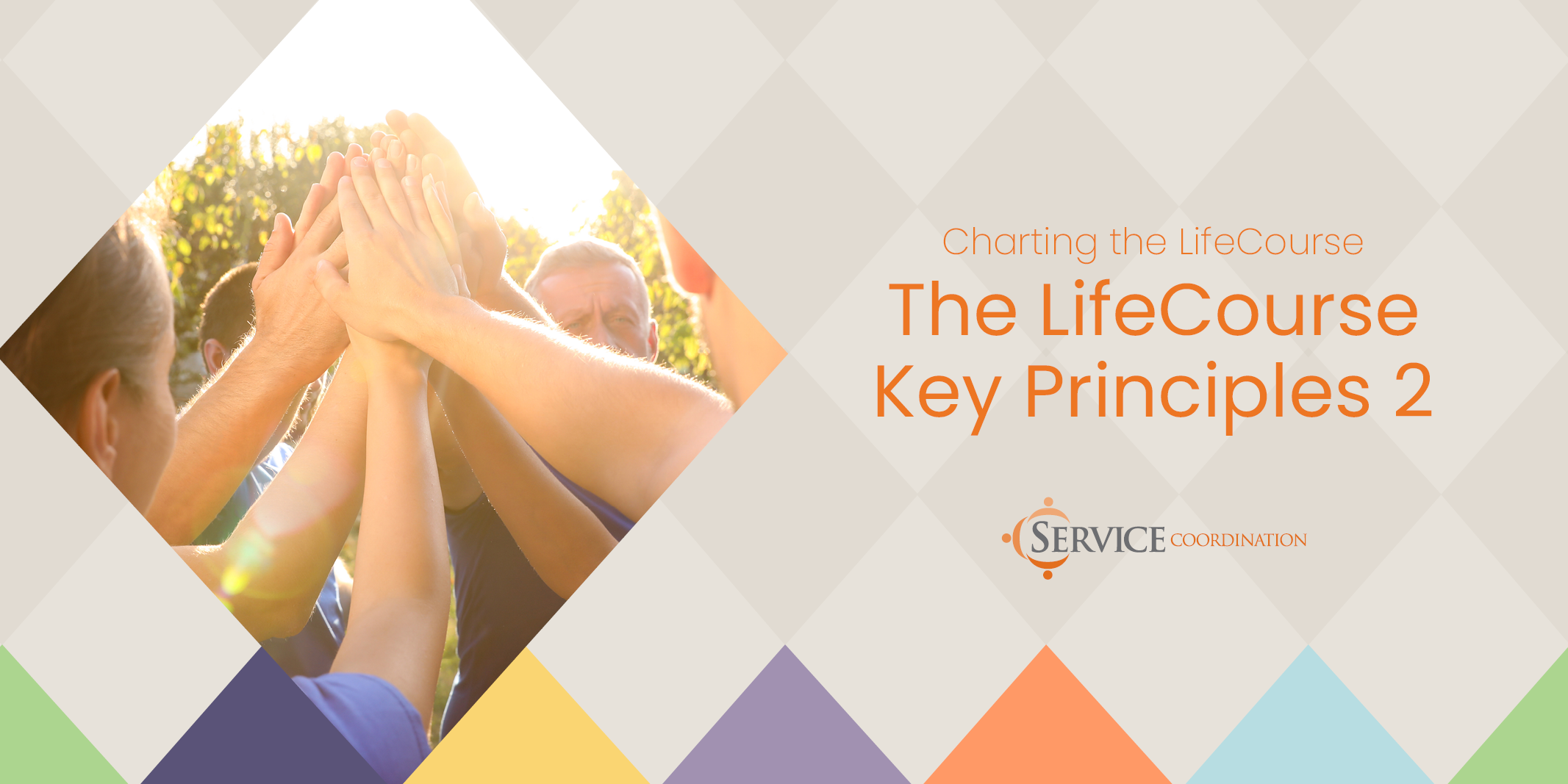The LifeCourse Key Principles 2

At SCI, we believe in A World for Everyone – a world of inclusion, diversity, equity and accessibility. To achieve this, we’re continually enhancing our service delivery and systems for Maryland residents, closely incorporating the Charting the LifeCourse framework.
The Charting the LifeCourse framework: https://www.lifecoursetools.com/, according to its website, is “an authentic grassroots activity, driven by the core belief that ‘all people have the right to live, love, work, play and pursue their life aspirations.’”
Part of the framework is eight LifeCourse Key Principles, which follows one of CtLC’s core beliefs: “All people have the right to live, love, work, play and pursue their own life aspirations.”
In a recent blog post, The LifeCourse Key Principles 1 | Service Coordination, Inc., we discussed the first four key principles. Here are the final four, as stated on the Charting the LifeCourse website: https://www.lifecoursetools.com/lifecourse-library/lifecourse-framework/.
Holistic Focus Across Life Domains
People lead whole lives made up of specific, connected, and integrated life domains that are important to a good quality of life. Life domains are the different aspects and experiences of life that we all consider as we age and grow. (We’ll talk more about Life Domains in future blog posts!)
Supporting the Three Buckets of Needs
The three strategies for supporting people, their families and support system, including friends and support can be organized into three categories (or buckets):
- Discovery and Navigation: having the information and tools you need to navigate life;
- Connecting and Networking: making connections with peers and resources to help you navigate;
- Goods and Services: the day-to-day tangible items you buy or use from public and private organizations in your community.
Integrated Services and Supports Across the Life Course
People and their supports can access an array of integrated supports to achieve their envisioned good life. These include those that are publicly or privately funded and based upon eligibility; community supports that are available to anyone; relationship-based supports; technology; and the personal strengths and assets of the individual.
Transformational Policy and Systems Change
People and their supports are truly involved in policy making so that they influence planning, policy, implementation, research and revision of the practices that affect them. Every program, organization, system and policy-maker must think about a person within the context of family or support system, and community.
As one of the organizations that implements this framework, we at SCI are dedicated to following its principles and ideas.
